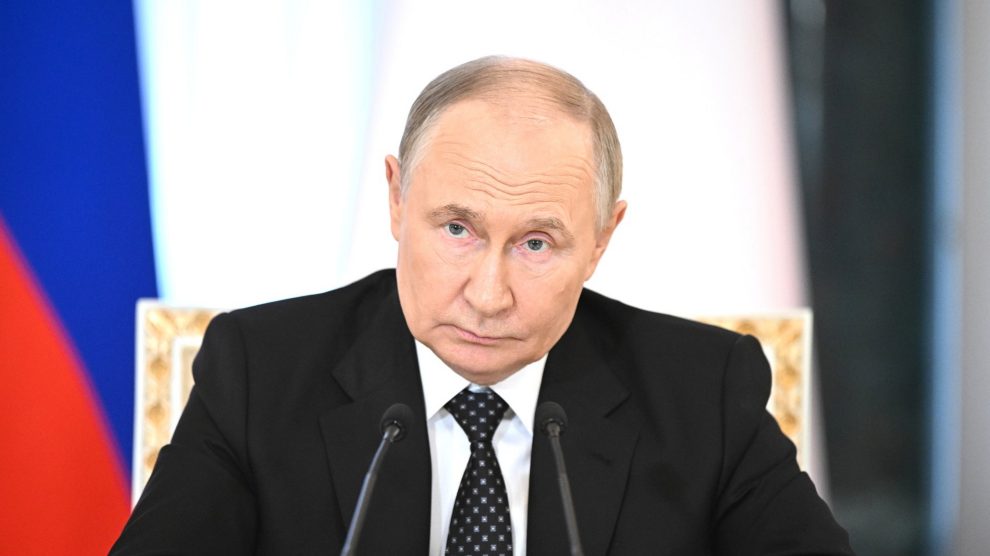Decoding the news. Two distinct but converging approaches test Italy’s ability to detect and manage foreign influence: on one side, China operates economically, cultivating goodwill through strategic investments; on the other, Russia leverages cultural channels and narratives to legitimise its regime and circumvent political isolation.
- Both strategies directly impact national sovereignty and Italy’s broader international alignment.
Russia’s strategy: culture as a tool of legitimisation. In a sharply worded letter published in Repubblica, Yulia Navalnaya — widow of Aleksei Navalny, the symbolic leader of the anti-Putin opposition — denounces Italy’s decision to invite conductor Valery Gergiev to the 2025 edition of the “Un’estate da Re” festival, scheduled for July 27 evening at “Reggia di Caserta”.
- Gergiev is one of Vladimir Putin’s most publicly loyal cultural figures: he has endorsed the annexation of Crimea, supported Russia’s intervention in Syria, and signed open letters backing the Kremlin.
- Navalnaya accuses the Italian cultural establishment of either naïveté or complicity, highlighting Gergiev’s active role in Putin’s propaganda machine, even during the political suppression of her husband.
- “At present, one of its objectives is to normalise Putin’s war and regime,” she writes. The implication is clear: even cultural events can serve as platforms for hybrid influence.
The Expert’s take. “Since 2022, Russia has systematically employed cultural diplomacy as a battering ram to gain influence and normalise the regime’s image in the eyes of European public opinion,” explains Matteo Pugliese, senior analyst at Debunk.org, an NGO monitoring Russian interference and disinformation.
- “This is not about censoring Russian artists per se, but about denying visibility to those who openly support the invasion of Ukraine or refuse to condemn it.”
- According to Pugliese, the Kremlin takes advantage of the “Italian ruling class’s lack of awareness about such figures”, many of whom have been rightly banned elsewhere in Europe.
- “In Gergiev’s case, we are talking about a figure closely tied to the regime, who actively participates in this whitewashing effort, just as some Italian artists have done by performing in Russia.”
Cyber retaliation hits Italy. On July 15, pro-Russian hacker group Noname057(16) launched a new wave of DDoS attacks against Italian institutions and telecom companies, including Tiscali and regional administrations in Tuscany, Piedmont, Emilia-Romagna, and Aosta Valley.
- The operation was claimed as a response to the Ukraine Reconstruction Conference held in Rome, where Italy pledged €10 billion in support.
- In their statement, the hackers accused Italy of “funding Ukrainian terrorists” instead of investing in cybersecurity.
- Italy’s National Cybersecurity Agency (ACN) had anticipated the threat and issued early warnings to affected entities. According to ACN, the timely alerts and preventive measures helped avoid service disruptions, marking a significant improvement in Italy’s cyber readiness.
- Officials credited not only increased institutional awareness but also targeted investments from the EU recovery fund (PNRR) aimed at strengthening digital defenses.
Cavalleria Rusticana — with Chinese characteristics. In Palermo, a delegation of major Chinese corporations met with local officials and business leaders to explore cooperation in key sectors such as energy and infrastructure.
- New photovoltaic plants were inaugurated, partly thanks to partnerships with Sicilian companies. The initiative was widely welcomed as a chance to attract foreign investment, although concerns were raised about the risk of “economic colonisation.”
- The mission, supported by the Chinese Embassy and organised by the Chinese Chamber of Commerce in Sicily, underscores Beijing’s strategic interest in southern Italy, also as a gateway to southern Europe and one of the Mediterranean terminals of its westward geopolitical outreach.
Yes but… Behind this economic cooperation — which involves critical sectors such as battery manufacturing and solar technology — may lie a broader ambition to cultivate long-term political and diplomatic influence.
- This possibility warrants careful monitoring and strategic assessment.
What we’re watching. The accidental convergence of Russian and Chinese initiatives in Italy highlights the country’s vulnerability to infiltration and influence by rival geopolitical actors — actors who view the West as a model to be systematically undermined within global governance frameworks.
- The fight against disinformation and foreign interference was a key priority during Italy’s G7 presidency last year, and it remains — and will remain — high on the strategic agenda of the European Union, the United States, and NATO.





